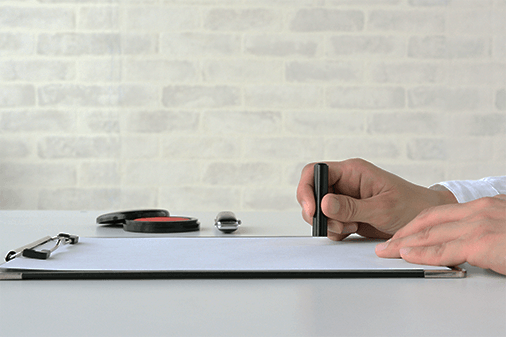In this article
Check your credit score today
Check your score and get tips to improve it. It’s free, forever.
How to get Guarantor personal loans
You can get personal loans that are backed up by someone you know. Find out more about Guarantor personal loans.

In this article
Check your credit score today
Check your score and get tips to improve it. It’s free, forever.
Qualifying for a loan may be an uphill battle, especially when you are struggling with no steady source of income or poor credit history. In such cases, you can increase your chances of getting a loan by getting a guarantor for your loan. Such personal loans are backed by someone you know from your family or friends circle who assumes the responsibility of repaying the lender in case you default on your obligations.
Here’s what you need to know about loans with a guarantor online in Australia.
Guarantor personal loans are a type of borrowing where the financial assistance provided by the bank or financial institution is guaranteed by someone who knows you, such as a family member or a friend, and has accepted the responsibility to pay off the loan if you cannot repay it.
Essentially, a guarantor act as co-signor of the loan and is considered security for the loan. It makes it less risky for lenders to extend financial assistance as they can demand repayment from the guarantor if the primary applicant defaults on payment. To provide such loans, lenders assess the repayment ability of both borrower and guarantor for loans.
Loans with a guarantor are usually of the following types:
Secured personal loan
Guarantor loans, where the item purchased using the loan's proceeds acts as the collateral for the loan, is known as secured loan. If the borrower fails to repay the loan, the lender can seize the item and sell it off to recover the dues. Alternatively, the lender may also ask the guarantor to provide an existing asset they own, such as their car or house, and use that as security for the loan. The fact that the loan proceeds have not been used to purchase the guarantor’s asset is irrelevant.
Unsecured personal loan
Loan with a guarantor where the lender does not require the borrower or the guarantor to offer any assets they own for securing the loan is known as an unsecured loan. Failure to repay the loan by the borrower results in the guarantor being called upon to discharge their obligation. Lenders bear a higher risk in the case of unsecured lending, and as a result, borrowers may expect to pay a higher interest rate than what’s charged for a secured personal loan with a guarantor.
Some lenders may also give you the option of adding a guarantor to debt consolidation loans. Such loans allow you to combine your existing debts and make a single repayment to help you get out of debt faster.
The amount of guarantor personal loan you can borrow depends on the lender. Factors such as the loan's purpose, credit score, source of income and expenses, and other outstanding debt obligations are considered to arrive at the final number. The lender also considers the guarantor's financial history before providing approval.
The amount may also vary depending on the type of loan you are choosing. For instance, between secured vs unsecured loans, you may be able to borrow a higher amount when you provide an asset.
How you plan to utilise the proceeds also impacts how much you can borrow. For example, if you want to use a loan to purchase a car, the amount will be restricted to the price of the car. However, if you want to borrow the loan to meet a personal expense, the lender may limit you from borrowing a higher amount as it poses more risk for them. Similarly, if you opt for guarantor personal loans with bad credit in Australia, the amount you can borrow may not be significant.
Personal loans with guarantors are not a magical solution to allow you to borrow as much as you can, as someone else also assumes the responsibility for payment. You need to be careful about who stands in as a guarantor.
So who can be a guarantor in Australia? Usually, you can consider anyone who has a fairly good credit history to become your guarantor.
Anyone standing in as a guarantor must also fulfil the following conditions:
- Should be at least 18 years old
- Should be an Australian citizen or hold a permanent resident status
- Should have a steady source of income
- Should have a good credit score
- Should be able to demonstrate that they are not undergoing any financial hardship
Usually, anyone who fulfils the eligibility requirement of becoming a guarantor in Australia can be considered for loans with a guarantor in Australia. The eligibility of the applicant is determined on a case-to-case basis.
Even though it is common for a guarantor to be a relative or friend of the borrower, it is not specified as a requirement by most lenders. However, you are unlikely to become a guarantor for a complete stranger, so a degree of familiarity can be helpful.
Additionally, lenders prefer those individuals as guarantors who do not have a pre-existing financial link with the borrower. For instance, if you and your spouse have a joint bank account and a common pool of assets, you cannot be a guarantor for each other.
To become someone’s guarantor means assuming responsibility for the payment of a debt borrowed by someone else. In other words, in case of loan defaults, you agree to step in and pay the debt.
As a result, there are several financial and legal implications. For example, if you provide an asset for a secured guarantor loan, you risk losing it if the borrower fails to repay the loan on time. Becoming a guarantor can also impact your credit history and make it difficult to secure borrowing if both borrower and you fail to honour your repayment obligations.
If you fulfil the eligibility requirements, you can act as a guarantor for a loan. Make sure to furnish details of your finances as part of the loan application. The lender may ask for bank statements, salary slips, and information regarding the assets you own.
If the loan application is approved, you must sign the relevant documents that legally recognise you as the loan's guarantor.
Getting a loan with a guarantor means that the credit provider now has two sources to fall back on for repayment.
As a result, the guarantor’s credit history is important -- one with a bad credit score is likely to be rejected as it would make the lending riskier for the lender. In such cases, opting for guarantor loans for bad credit can be an alternative.
It is also important to note that defaulting on loans with guarantor not only impacts their credit score but the guarantor’s as well since the information appears on both credit reports.
Getting a personal loan with a guarantor, even when you have bad credit, is not impossible. In fact, often, borrowers get a guarantor as the loan application is unlikely to be approved based on their credit score alone. While bringing in a guarantor is not a guarantee that the lender will approve your application, it surely increases your chances.
You can also consider approaching lenders who provide guarantor loans for bad credit. You can also check with lenders if there is an option to avail of a loan with a guarantor with no credit check.
In other words, if you are already struggling with bad credit, you may be better off opting for loans for bad credit with no guarantor.
If someone has asked you to become a guarantor, here is what you should keep in mind before you sign up for guarantor personal loans in Australia:
Your credit score may come down
If the borrower defaults on payment obligations, your credit rating may also get impacted. This can make it difficult for you to borrow in the future.
Make it a point to monitor your credit score periodically. You can sign up on ClearScore to get credit score for free all around the year.
Your chances of getting new credit gets impacted
Once you become a guarantor, you must provide a declaration for the same whenever you make any credit application in your name. Depending on the loan amount for which you are a guarantor, your ability to get new credit may be adversely impacted.
The guaranteed asset remains locked up till the life of the loan
Any asset you own provided as a security for someone else’s loan as part of a secured guarantor loan makes it impossible for you to use the asset for your use in the future. If both you and the borrower default on repayment, you risk losing that asset.
Your legal obligation cannot change even if the interpersonal relationship changes
If you have a fallout with the borrower, you still remain legally obligated to pay off the loan in case of a default. That’s why you should carefully evaluate your relationship before becoming their guarantor. Moreover, becoming a guarantor can also sour your relationship with a close family member or friend, especially when there is a default.
Getting a guarantor is not mandatory to borrow from the market. There are plenty of no guarantor loans provided by lenders.
Depending on your situation, here are some alternatives to guarantor loans in Australia that you may consider:
Joint personal loan
You have the option to apply for joint personal loans along with a family member or your partner. Instead of one party becoming a guarantor, you act as co-borrowers. The liability to repay the loan is equal. In other words, unlike a guaranteed arrangement, where the guarantor’s obligation kicks in only when the borrower defaults, the obligation of a co-borrower exists right from the moment the funds are provided.
Joint personal loans in Australia are a great option if you find it difficult to get approved for a loan based on your current income. Combining your income with someone else may help you qualify for the minimum income requirement.
An unsecured personal loan
Opting for unsecured personal loans is an option if you don’t have a valuable asset to offer as collateral and don’t want to look for a guarantor. However, remember that such loans attract a higher interest rate than secured loans.
This is a good option for those looking for loans for those with bad credit and no guarantor.
An instant-approval loan
For short-term loans, you may also consider a payday loan or instant approval loan that provides immediate access to funds.
Similar to bad credit personal loans, the lending criteria are more relaxed for such loans though the interest rate tends to be on the higher side. Together with fees and penalties, the cost of borrowing may quickly add up. Make sure to read the fine print and do your research before you apply for one.
Buy now, pay later
There are several buy now/pay later platforms that provide instant access to credit for making purchases. You can repay the loan in instalments over a specified period. Most providers do not charge any interest. However, the borrower must pay monthly fees and penalties in case of delayed repayments. Since these are no credit check loans, they are extremely attractive for borrowers with poor credit histories.
To sum up, if you find it difficult to qualify for a loan based on the standalone criteria for a borrower, you can consider getting going for guarantor loans from lenders only. Even though bringing a guarantor doesn’t guarantee approval of your loan application, it can surely maximise the chances.
Doug loves to work with lenders to get ClearScore users the best deals
